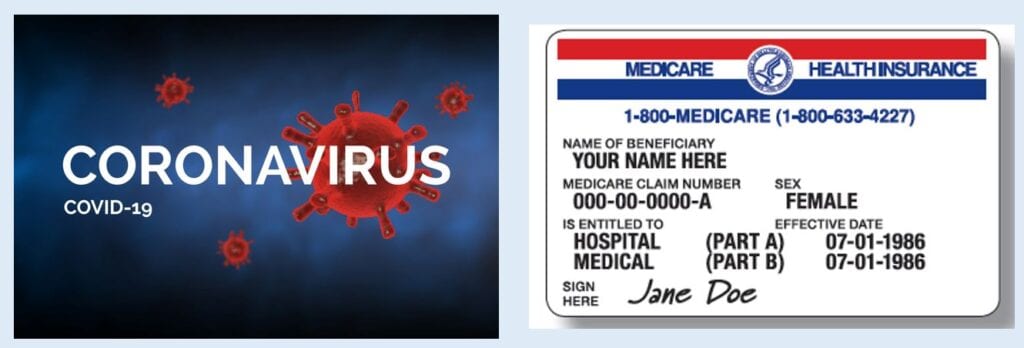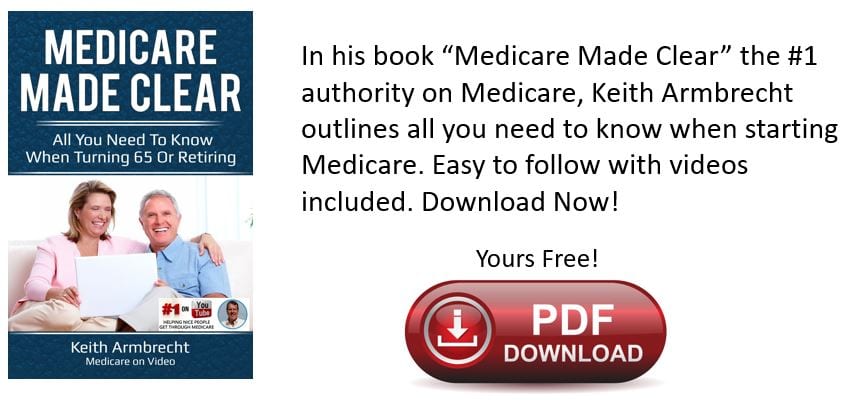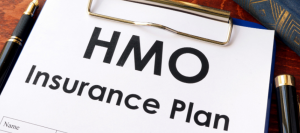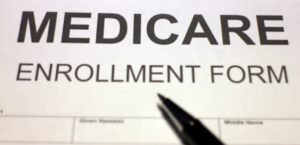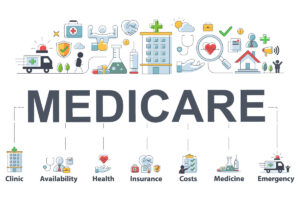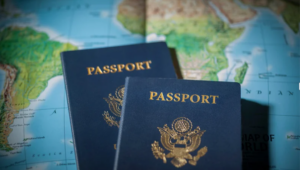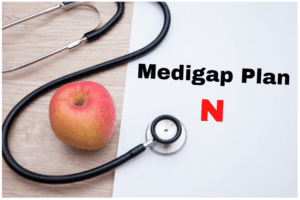Does Medicare Cover Testing for COVID-19?
Medicare issued rules applicable to testing for Covoid-19 in early 2020 that made it easier for Medicare beneficiaries to get tested and eliminated the cost of testing for Medicare beneficiaries under Medicare Part B. The CMS order eliminated the need for beneficiaries to get an order for the test from their physician. This change allowed Medicare beneficiaries access to the many community-based drive-through, pharmacy, off-site hospital system locations, and other locations, as well as get testing in nursing homes, which have proven to be a high-risk location for Medicare beneficiaries with respect to getting COVID-19.
In addition, Medicare also covers the Medicare Antibody test to determine if a beneficiary has been infected with COVID-19 and has developed antibodies to the COVID-19 virus.
The rules outlined by Medicare apply to those enrolled in Original Medicare, including those enrolled in Medicare Supplement (Medigap plans). Since all Medicare Advantage plans must at a minimum cover all services covered under Original Medicare Part A & Part B, the same COVID-19 rules and coverage apply to those enrolled in Medicare Advantage products.
What are the out-of-pocket charges for COVID-19 testing?
Medicare beneficiaries who get the COVID-19 test do not have to pay the Part B deductible. There is also no coinsurance applied to the COVID-19 antibody test. This did not require a change from Medicare as clinical diagnostic laboratory tests have been and continue to be covered by Medicare with no out-of-pocket costs. The Families First Coronavirus Response Act has also eliminated cost-sharing for services related to COVID-19 testing. This includes expenses like a physician or outpatient visit, other outpatient visits, including hospital observation, telehealth or online visit, or ER services. Medicare defines a testing-related service as a medical visit that happens during an emergency resulting in the ordering or administering a COVID-19 test. Cost-sharing is also eliminated for those enrolled in Medicare Advantage the COVID-19 test and testing-related services. Health plans are also prohibited from applying any prior authorization requirements or other utilization management rules or programs for these services.
This includes expenses like a physician or outpatient visit, other outpatient visits, including hospital observation, telehealth or online visit, or ER services. Medicare defines a testing-related service as a medical visit that happens during an emergency resulting in the ordering or administering a COVID-19 test. Cost-sharing is also eliminated for those enrolled in Medicare Advantage the COVID-19 test and testing-related services. Health plans are also prohibited from applying any prior authorization requirements or other utilization management rules or programs for these services.
COVID-19 Treatment Options for Medicare Beneficiaries
For those Medicare beneficiaries who get the COVID-19 virus, the same inpatient, outpatient, and other services typically provided under Medicare are available. Below are the Medicare Part A costs for Medicare Beneficiaries. The same copays that apply Medicare Part A services for other health conditions still apply to those with COVID-19.
Part A hospital inpatient deductible and coinsurance | You pay:
|
Skilled nursing facility stay
| · Days 1–20: $0 for each benefit period. · Days 21–100: $176 ($185.50 in 2021) coinsurance per day of each benefit period. · Days 101 and beyond: all costs. |
Home health care | o $0 for home health care services. o 20% of the Medicare-approved amount for Durable medical equipment (DME). |
Hospice care
| o $0 for hospice care. o You may need to pay a copayment of no more than $5 for each prescription drug and other similar products for pain relief and symptom control while you’re at home. In the rare case, your drug isn’t covered by the hospice benefit; your hospice provider should contact your Medicare drug plan to see if it’s covered under Medicare drug coverage (Part D) o You may need to pay 5% of the Medicare-approved amount for inpatient respite care. o Medicare doesn’t cover room and board when you get hospice care in your home or another facility where you live (like a nursing home). |
If a COVID -19 vaccine is approved, will it be covered by Medicare?
Preventive vaccines, including those for the flu, pneumonia, and Hepatitis B, are covered as part of Medicare Part B services. These vaccines are exempt from the Part B coinsurance and deductible. Medicare Part B also covers vaccines related to medically necessary treatment. Based on one of the CARES Act provisions, if a COVID-19 vaccine becomes available, Medicare is required to cover it as a Part B benefit with no cost-sharing applied for Medicare beneficiaries (and those with Medicare Supplements) for either the COVID-19 vaccine or its administration. Again, since Medicare Advantage plans must at a minimum cover the same benefits as Medicare Part A and Part B, the coverage and cost-sharing will be the same.
What about Medicare Beneficiaries in nursing homes? Are there any special rules that apply to them?
As a response to the coronavirus pandemic, Medicare waived the requirement that a beneficiary must have a 3-day prior hospitalization to be covered in a skilled nursing facility (SNF). This works to benefit those that may need to be transferred to a SNP due to the COVID-19 pandemic but were not admitted inpatient for the minimum of three days before being moved to a SNF. Another waiver applies to those who recently exhausted their SNF benefits. This waiver allows those who have not started a new benefit period to be readmitted to a SNF coverage without waiting to start a new benefit period.
Medicare has issued specific guidance to nursing homes to help reduce the spread of COVID-19 within the vulnerable Medicare Beneficiaries living in those community facilities. This directive requires nursing homes to restrict visitation by all visitors and non-essential health care personnel (except in compassionate care situations such as end-of-life). It also requires them to stop providing meals in a communal dining setting and eliminate all other group activities. They must also routinely screen residents and staff for symptoms of COVID-19 and have staff use personal protective equipment (PPE).
What to do after you have been tested for COVID-19
If you do get tested for COVID-19, there are several things you should do while you wait for your test results.
- Stay home and watch for any symptoms that may indicate you have COVID-19. These symptoms can include fever, cough, difficulty breathing, headache, loss of taste or smell, congestion or runny nose, headache, and shortness of breath. These symptoms can show up anytime between 2 and 14 days after exposure to COVID-19. When possible, stay away from others, especially those at high risk for catching COVID-19, including other older adults and those with preexisting health conditions that may make them more vulnerable.
- Make a list of all the people you have recently been in contact with and places you have been. If your COVID-19 test comes back positive, you may be called by a public health worker to check on your health and conduct contact tracing, so having a list of people you have been in contact with and places you have been ready will be helpful.
Answer or return any calls from public health workers. Any information you share with them will remain confidential and will only be shared with those providing care for you, like your primary care physician. The health department will not share your name with anyone you may have been in contact with as they complete their contact tracing work. As a  part of the contact tracing process, they will notify only those people with who you have been in close contact with (within 6 feet for more than 15 minutes) as they may have then been exposed to COVID-19.
part of the contact tracing process, they will notify only those people with who you have been in close contact with (within 6 feet for more than 15 minutes) as they may have then been exposed to COVID-19.
Using Telehealth for COVID-19 Related Services
In response to the COVID-19 pandemic, Medicare temporarily expanded Medicare beneficiaries’ ability to use telehealth physician services. This was done to expand access to healthcare services that may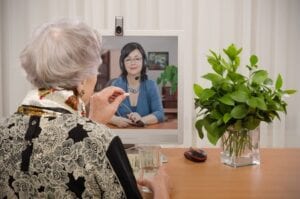 be needed if you have been diagnosed with COVID-19. This temporary expansion of services allows you to receive certain services through telehealth, including virtual office visits, counseling for mental health issues, and preventive health screenings. Medicare implemented this change to ensure that Medicare beneficiaries will still have access to care without having to go to a doctor’s office or hospital, which may put you at risk of exposure to COVID-19.
be needed if you have been diagnosed with COVID-19. This temporary expansion of services allows you to receive certain services through telehealth, including virtual office visits, counseling for mental health issues, and preventive health screenings. Medicare implemented this change to ensure that Medicare beneficiaries will still have access to care without having to go to a doctor’s office or hospital, which may put you at risk of exposure to COVID-19.
Some Medicare beneficiaries do not have access to virtual or video technology or are uncomfortable using those tools, so Medicare is also allowing beneficiaries to access the same services by phone.
Other ways Medicare is helping to address the COVID-19 pandemic
Some additional steps Medicare has taken include the following:
- Allowing Medicare Advantage and Part D Plans to waive or relax prior authorization requirements.
- Allowing hospitals to provide hospital services at other locations that aren’t currently considered part of a healthcare facility improves access and reduces the risk of going to a hospital.
- They have waived some requirements for care from skilled nursing facilities.
- Developed and implemented new codes so healthcare providers can bill for services related to diagnosis and treatment of COVID-19.
- Focused significant efforts and dedicated resources in the area of infection prevention in nursing homes and hospitals.
Coping with the stress and isolation brought on by the COVID-19 pandemic
Medicare has focused significant resources over the past several years to address the impacts on physical health brought on by social isolation in the senior population. The COVID-19 pandemic and resulting requirements for vulnerable populations like those over 65 have heightened many people’s isolation. There are several ways you can help deal with the stress and isolation brought on by this public health emergency:
- Take breaks from watching, reading, or listening to news about the pandemic.
- Maintain your healthy habits. Make sure you continue to stay active and continue to do the things you can while at home. Exercise or just make sure you are moving, meditating, eating healthy meals, getting plenty of rest, and avoiding alcohol and drugs.
- Stay connected with friends and family. Talk with your family or friends regularly, even when there doesn’t seem like there is anything new going on. The value of maintaining connections to ones we love is immeasurable.
- If you, or a friend or family member is feeling overwhelmed with sadness, depression, or anxiety, or feel like you want to harm yourself or others, call 911 or the Substance Abuse and Mental Health Services Administration’s (SAMHSA’s) Disaster Distress Helpline: 1-800-985-5990 or text TalkWithUs to 66746 (TTY: 1-800-846-8517).



